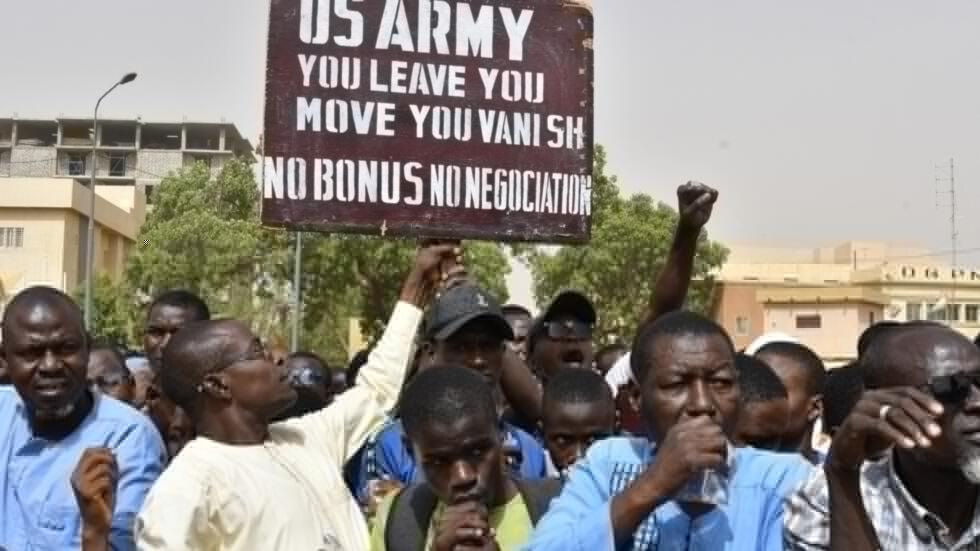
The United States’ tone and behavior toward Nigerien officials was the primary reason for the collapse of its relations with Niger, after a senior US official threatened the country’s authority during recent last-attempt negotiations regarding the presence of American forces, Niger’s Prime Minister Ali Mahamane Lamine Zeine revealed in an exclusive interview with The Washington Post.
Zeine confirmed that ties with the US significantly deteriorated due to US officials’ attempt to dictate Niger’s foreign partnership choices, in addition to failing to provide adequate justification for the stationing of US forces in the country, which is now slated to end in the coming months.
Following a military uprising last year led by Tiani that ousted the Western-backed President Bazoum, the US suspended security agreements and assistance with Niger.
“The Americans stayed on our soil, doing nothing while the salafists killed people and burned towns,” the premier said. “It is not a sign of friendship to come on our soil but let the terrorists attack us. We have seen what the United States will do to defend its allies, because we have seen Ukraine and Israel.”
Citing US officials, the newspaper reported that the withdrawal of the US troops marks a notable setback for US President Joe Biden’s regime.
Zeine expressed that the leaders of Niger’s new government were puzzled by Washington’s decision to suspend military assistance while simultaneously insisting on maintaining troops in the country, all without providing justification for their ongoing presence.
He noted a stark contrast in the US reaction to Niger’s political power shift, compared to other countries which welcomed the new leaders of Niger “with open arms”.
The prime minister pointed out that the Nigerien government was particularly offended by comments made by Molly Phee, the State Department’s senior official for African affairs, during her visit to the capital Niamey in March.
He said that Phee had warned the country’s officials against engaging with Iran and Russia in manners that Washington found objectionable if Niger wished to maintain its security ties with the United States. Additionally, Zeine said that Phee had threatened sanctions if Niger proceeded with a uranium deal with Iran.
“When she finished, I said, ‘Madame, I am going to summarize in two points what you have said…First, you have come here to threaten us in our country. That is unacceptable. And you have come here to tell us with whom we can have relationships, which is also unacceptable. And you have done it all with a condescending tone and a lack of respect.”
Following the power shift, Niger’s new government expelled some 1,500 French soldiers stationed in the country, but briefly left open the possibility for US forces to stay.
Speaking in an earlier interview, Phee said that US officials “made the choice as stark and clear” as much as possible during the December meeting with Niger’s leadership. She added that the officials said that US support would “remain suspended until Niger set a timeline for restoring democracy.” This is a traditional euphemistic phrase Washington uses when it demands a political process that favors its interests.
When Phee came back to Niamey earlier this year, “I asked Modi if he knew how many Americans were in the country and what they were doing exactly,” Zeine said. “He said ‘No'”. The prime minister said that he then turned to Phee and posed the question, “Can you imagine the same thing happening in the United States?”
He explained that this visit marked a significant shift, largely due to Phee’s hour-long opening remarks. She accused the Nigerien government of striking a deal to sell uranium mined in Niger to Iran, which could potentially use it for its nuclear program.
Zeine said that these allegations are not only untrue but also that “absolutely nothing” was signed during his visit to Tehran in January. If an agreement had been signed, “it would have not been under the table … but in front of cameras.”
He likened the United States’ actions to those of George W. Bush’s administration before the Iraq invasion, citing subsequently debunked intelligence that claimed Saddam Hussein’s regime had attempted to procure uranium from Niger for a nuclear weapons program.
Despite Niger’s insistence on the departure of US military personnel, Zeine emphasized that his government desires to maintain economic and diplomatic ties with the United States, which could prove to be a grave error.